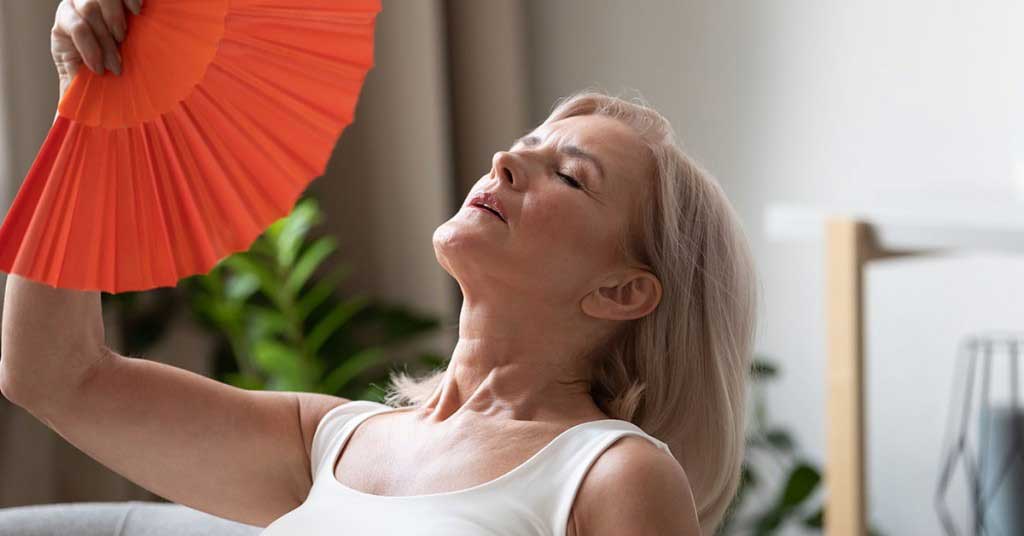How To Manage Menopause?
Almost all women suffer from menopausal symptoms. Most women find these symptoms tolerable and opt out of treatment. When symptoms are extremely severe or chronic, there are several options for treatment.
Night sweats and hot flushes
These are the most frequent symptoms related to menopause.
Hot flushes can be reduced if you can detect and avoid anything that may cause them, such as hot drinks, hot temperatures, stressful situations, and spicy meals. Some females find that dressing in layers helps them chill off faster. Some people find a fan useful. Stress-reduction practises such as mindfulness or meditation may also aid in the relief of this condition.
Night sweats that interfere with sleep are one of the most distressing symptoms of menopause. Wearing light, lightweight bedclothes or sleeping bare may assist to alleviate this sensation. To reduce overheating at night, some women wear separate bed coverings from their partners. A bedroom fan may also be beneficial.

Menopausal symptoms treatment
Drug-free (non-pharmacological) therapies are available. There are various non-drug options for reducing the severity of hot flushes and night sweats. These are some examples:
- Counselling and psychological treatments such as cognitive behaviour therapy (CBT) are available.
- Hypnosis may also be beneficial.
- Acupuncture can also help certain women.
While fast breathing, exercise, and relaxation programmes (such as mindfulness) may be beneficial to your overall physical and mental health, they may not lessen menopausal symptoms significantly.

Non-hormonal medication therapies
A number of prescription drugs have been demonstrated to alleviate hot flushes and nighttime sweats. Unfortunately, they have little effect on vaginal dryness. Prescription drugs for hot flushes and sweating include the following:
- Venlafaxine, escitalopram, citalopram, paroxetine, and other antidepressants
- A medication named gabapentin (which is occasionally used to relieve chronic pain)
- Clonidine is a blood pressure medicine.
When compared to a placebo or sugar pill therapy, these medications may reduce hot flushes and nocturnal sweats by 40-60%. Antidepressants and sleep-improvement medications may enhance mood as well.
Menopausal Hormone Therapy (MHT)
MHT includes oestrogen for treating symptoms of menopause and may contain a progestogen to protect the lining of the uterus (womb) from cancer in women who have not undergone a hysterectomy. Hormone replacement treatment (HRT) or hormone therapy (HT) are other terms for menopausal hormone therapy.
MHT decreases hot flushes and night sweats by roughly 80%, making it the most effective therapy available today. MHT also protects bone by lowering the risk of osteoporosis and fracture. MHT is well tolerated by the majority of women, however, some have uterine haemorrhage or breast pain. A gynaecologist may need to investigate them to rule out other causes.
Most healthy women approaching natural menopause can safely take MHT for up to 5 years, or until they reach the age of 60. Breast cancer risk increases after 5 years of combination (oestrogen + progestogen) MHT. Stopping MHT may cause a relapse of menopausal symptoms.
For quality management of your menopause symptoms visit Texas Specialty Clinics. Our healthcare professionals provide effective primary care. Call us immediately to evaluate your condition with our specialists.

